Frank Randall is the marmite of the Outlander world; you either love him or hate him. At the end of the third season I put my loathing of him into words.
I have no love for Frank; zero, zilch, nada. I recently found a Defense of Frank Randall that Diana Gabaldon wrote after fans entered into heated discussions about ol’ Milquetoast Randall. While she didn’t quite understand the vilification of him, she did suggest that women who are unhappy with their own significant others might pin their relationship shortcomings on Frank all the while wishing for their own James Fraser. Damn girl, that is harsh, hurtful and, in my case, absolutely true. I could make a long story short and tell you I loathe Frank because he reminds me of my ex-husband, but I don’t see the fun in that. Here’s my chance to kill two birds with one wordy stone and I’m going to take it. Also, I did make a note awhile back to write this post so here goes.
Let me start by saying that I did feel a pang in my heart for Frank in the first two episodes of Outlander. I really did. He clearly loved Claire and was happy that they were together again and that the war was behind them. Then she disappeared into thin air. As I got deeper into Season 1 and read the books, I found my sympathy for Frank flagging, being replaced gradually by a litany of other emotions.
Frank Confused His Subscription to Ancestry.com With a Honeymoon
Claire’s voice-over in the opening scenes of episode 1 tells us that the trip to the Scottish Highlands was Frank’s idea. She says, “I think we both felt that a holiday would be a convenient masquerade for the real business of getting to know the people we had become after five years apart.” Five years apart would absolutely wreak havoc on a marriage and a second honeymoon would be a wonderful way to rekindle the flames. Frank is so ready to hit the restart button that as soon as he walks into their room, he sets down his bags, grabs Claire and slowly undresses her. No, that’s not right. Let me try that again. He sets down his bags, grabs a book and begins to read. It’s not exactly the stuff of fantasies, is it?
Frank does oblige Claire and they do the squeaky mattress dance, but it is clearly not the first thing on his mind. We next see Frank with Reverend Wakefield discussing Black Jack Randall. They have obviously been there for awhile because Claire has excused herself to a different room to read a book. If one is intent on reclaiming a marriage, why spend your days with an elderly minister (no offense, kind Reverend) in his study rummaging through old papers? Diana tells us that we see Frank through Claire, so was Claire the only one interested in finding what they lost in the war? Does Frank even know that something was lost? Either way, he’s damned in my eyes. He’s either unwilling to work on a relationship strained by years of separation or clueless to the effects of time.
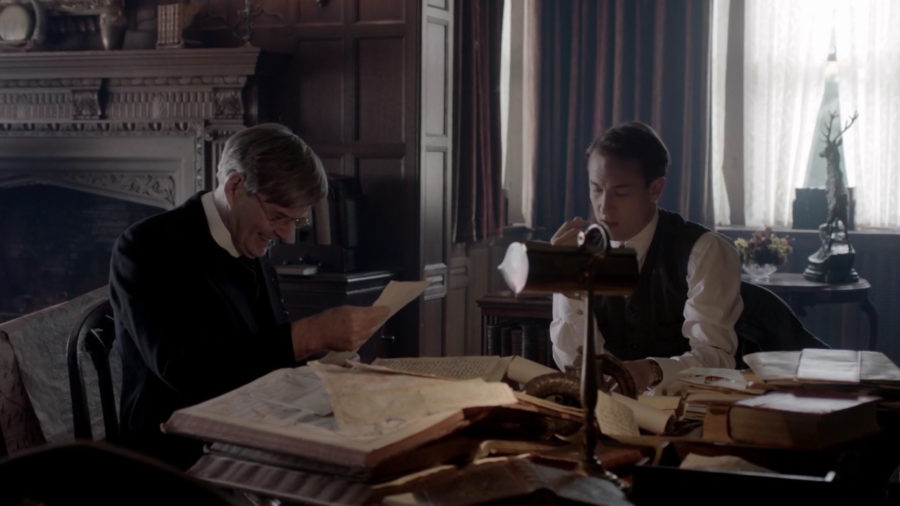
Frank Sees a Ghost and Jumps to Conclusions
I don’t picture Frank as the athletic type but the way he leaps from seeing a ghost to wondering if Claire has been unfaithful makes me think that he should have signed up for a track and field team. Guilty conscience much, Frank? Maybe it’s just me, but any conversation that begins with “if you’ve been unfaithful, that’s OK I’ll still love you anyway” sounds a lot like “please tell me if you were unfaithful because it will make me feel less guilty about my own rampant sowing of wild oats.”
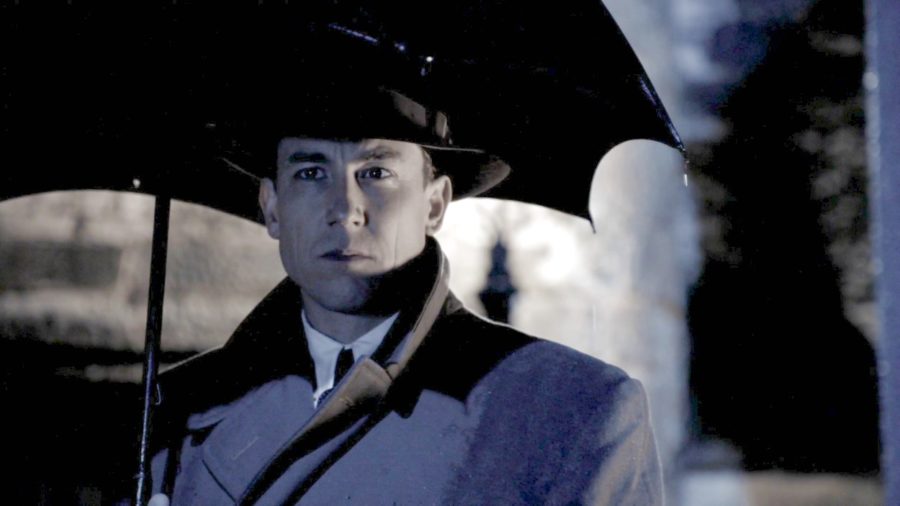
A Wedding is Not a Surprise Party
In “The Wedding,” we see a flashback (flash forward?!) to Claire and Frank’s wedding day. Claire and Frank are walking to a dinner where Claire will meet Frank’s parents for the first time. Frank stops in the middle of the street and asks Claire if she is ready. “Ready for what?” she asks. Frank nods to the Register’s Office and asks Claire to marry him. She looks stunned and asks about a proper wedding and what his family will think. Frank says that he only cares about the family that they will make together.
He doesn’t ask Claire if she would prefer a different kind of wedding or if she’d like to wait until the weekend to think about it. He just gives her a choice in the middle of the street and she says yes. My initial reaction, the emotional one, was to see this as a romantic gesture. Frank was saying, damn my family, I want you to be my wife. After the logical side of my brain kicked in, this felt like a train wreck waiting to happen.
I’m sure plenty of people have gotten married on impulse and lived quite happily for years to come. I’m also willing to bet those marriages are more the exception than the rule. The sudden proposal in the street and the hasty wedding that followed seemed more like an opportunity for Frank to catch Claire in a vulnerable moment and snatch her up before they both went off to war to meet their fates and other lonely men and women.
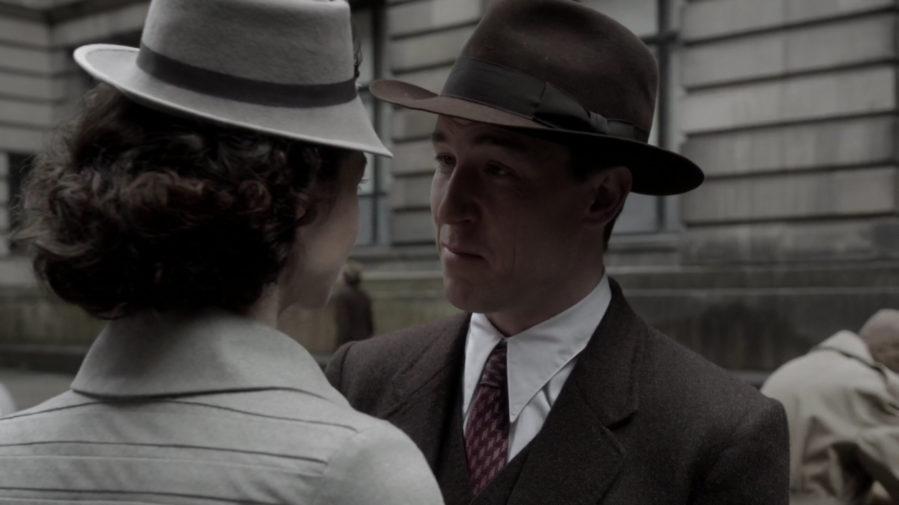
Think about how different it is from Jamie and Claire’s wedding. Neither of them really have a choice in the matter, but Jamie is determined to give Claire a wedding that she will remember for the rest of her life – exactly the amount of time he intends to be by her side.
He sends the Highlanders on a wedding scavenger hunt in order to make the day perfect. Angus and Rupert threaten bodily harm to the blacksmith to get Claire’s ring. Murtagh is nearly talked to death by a widow in order to get Jamie’s wedding kilt. I’m still not entirely sure what Ned has to do to get Claire’s dress from the hoors but he seems no worse for the wear. And in those few moments that pass between Jamie and Murtagh in the stable, Jamie says that he wants a wedding that would make his mother proud. Not only does Jaime care about Claire, he cares about how his family, even those who are no longer alive, will receive her.
On Hearing of a Fantastic Journey
When Frank and Claire are reunited, Frank tells Claire that she doesn’t need to tell him anything and that he is just happy she has returned. Claire insists, though, and she spends an evening telling him of her time with Jamie. As the sun rises, Claire finishes her story and Frank struggles to process what he has just heard. He says “it’s quite the leap of faith, but it is one I am prepared to make.”
He tells Claire that he loves only her and insists he doesn’t care what has happened. He pleads with her to restart their life together until she tells him that she is pregnant. For a moment Frank believes that the child is his and then, as he realizes the truth, he flies into a rage, hovering over Claire and looking all the world like Black Jack Randall. To Frank’s credit, he does return later and says that he wants to raise the baby together.
Despite having just given Frank a tiny bit of credit, I’m going to take most of it back. Book readers know that Claire brings up the idea of adoption with Frank before she goes through the stones. He tells her that he doesn’t believe that he can ever “feel properly toward a child” who is not of his own blood. He wants to give Claire a child and he wants to see the child grow and know that it is part of her, part of him.
So, what changed? When I see this scene, rather than a tender moment of sacrifice I see, instead, the moment where Frank acknowledges that he cannot father children and that this is his last best chance to have a family. For a man so steeped in history and ancestral ties, this unborn child represents a new branch on his family tree and, for that, he is willing to look beyond whatever transpired between Claire and Jamie.
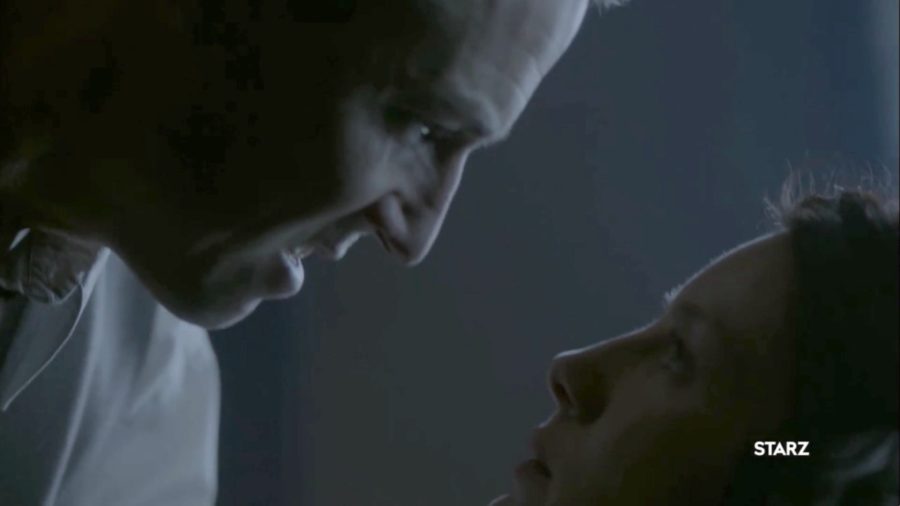
When Claire tells Jamie about her time travel he is stunned, but he listens to her story with amazement and wonder. He asks questions. Jamies tells her that it is difficult to believe, but he will do it because he trusts her. He then, in an act of selfless love, takes her to the stones so that she can return to her own time. Perhaps because of that grand act, or because of the many smaller acts of love and kindness Jamie has shown to Claire, she chooses to stay with him.
True Love Has no Conditions Until it Does
Frank tells Claire that he wants to live a life with her as man, wife and child but that he has conditions. “We will raise this child as our own – yours and mine.” Secondly he tells Claire that “while I draw breath on this earth I cannot share you with another man.” He goes on to tell Claire that she cannot look for traces of Jamie in libraries or books and that she must let Jamie go. Claire agrees but is, clearly, a conflicted woman. Frank then sets flame to Claire’s clothes.
Bonus points to Frank for finally stoking a fire but, again, points must be deducted for his mistaken belief that the flames would erase Claire’s memories of the life and love that she shared with Jamie. The villainous cherry on top of the conditional sundae that Frank prepared for Claire was that they would live this new life in Boston so that they wouldn’t be hounded by British press and the story of the lady taken by the fairies. Because I never give Frank the benefit of the doubt, I also assume that this is a way for him to more easily assume the role of Brianna’s father without all the nagging suspicion from friends and colleagues regarding the flame-haired Viking-child roaming the hallowed halls of Oxford.
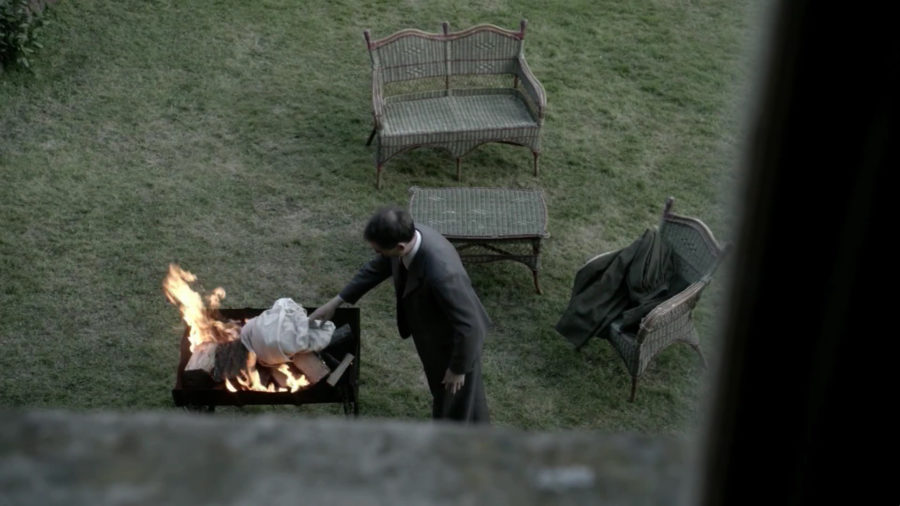
We’ve All Known a Frank. Right?
Jamie was jealous of Frank and he said so on many occasions, but he never asked Claire to wipe her memory of him. Think of the scene in Season 3 on the Artemis when Claire spots a trunk in the corner of their cabin. She opens it and finds that it contains her clothes from Paris. In a time when those clothes could have been sold for precious money, Jamie wouldn’t allow it because they were his last tangible reminder of Claire.
In an interview, Caitriona Balfe said that Jamie is the man most women want but Frank is the man with whom we find ourselves. I think there’s a great deal of truth in that. And, in a vacuum, Frank isn’t all that bad. He’s clearly committed to Claire and is willing to put some effort into the relationship. He swallows no small amount of pride in agreeing to raise another man’s child as his own and to provide for his little, dysfunctional family. In many cases that would be enough to make a marriage work. Claire is not living in a vacuum, though, and she forever views Frank through the lens of her love and passion for Jamie. It’s not fair, but life often isn’t.
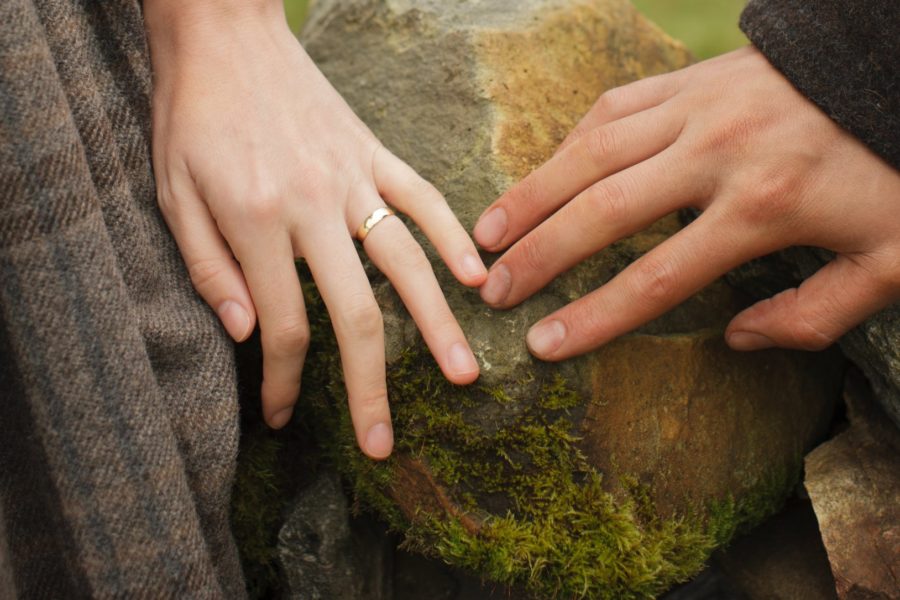
Hitting a Little Too Close to Home
I was married to a man who embodied most of Frank’s better traits. He was a limp handshake dressed in a brown suit sort of guy that wasn’t going to rock anyone’s world, but probably wouldn’t single-handedly destroy it either. In fact, our marriage might have lasted longer than it did had we not experienced, to borrow another author’s term, a series of unfortunate events.
Those events caused me to view him in a light that was most unfavorable. He was still the same person, but viewed from a different angle, he became foreign, unfamiliar. A dear friend once told me that the opposite of love is not hate, but apathy. As our marriage fell apart I realized that my anger was not a product of falling out of love; it was instead a recognition of all the time that I had lost trying to make my life feel “right” and knowing that it never would. It was realizing that, in the face of what could be, what is didn’t really stand a chance.
And herein lies my hatred of Frank. It truly isn’t him. It’s me. It’s Claire. It’s having experienced what life could be and being left with what it is. Tennyson wrote “’tis better to have loved and lost than never to have loved at all.” It’s a fine sentiment, but it rings a little hollow when the lost love is James Fraser King of Men. The loss becomes grief and sometimes the weight of that grief results in a thrown ashtray (but wasn’t it glorious?) and angry outbursts. Sometimes, the grief becomes hate and loathing and loved ones, judged perfectly fine by the rest of the world, become the enemy.
So, yes, I do despise Frank Randall. I hate him so much that it pained me to watch him in Season 3. Seeing Frank and Claire’s mutual loneliness play out on my television screen was painful because I remembered all too well what it felt like to live in that emotional space. I did watch though because sometimes it’s good to be reminded that shadows come from the light. The shadows in Claire’s life came from the light that burned bright for Jamie and the love that waited for her on the other side of the stones, and it was one hell of a ride watching her return to that light.
Where do you stand on Frank? Do you hate him? Do you love him? Are you on the fence?
This article was originally published at Outlandercast.com on October 2, 2018.
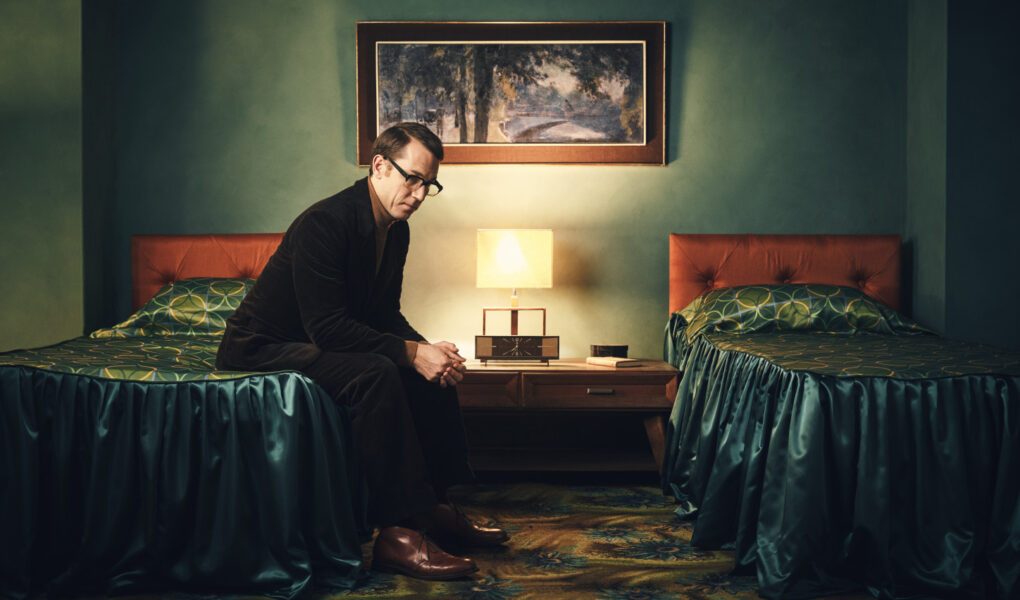


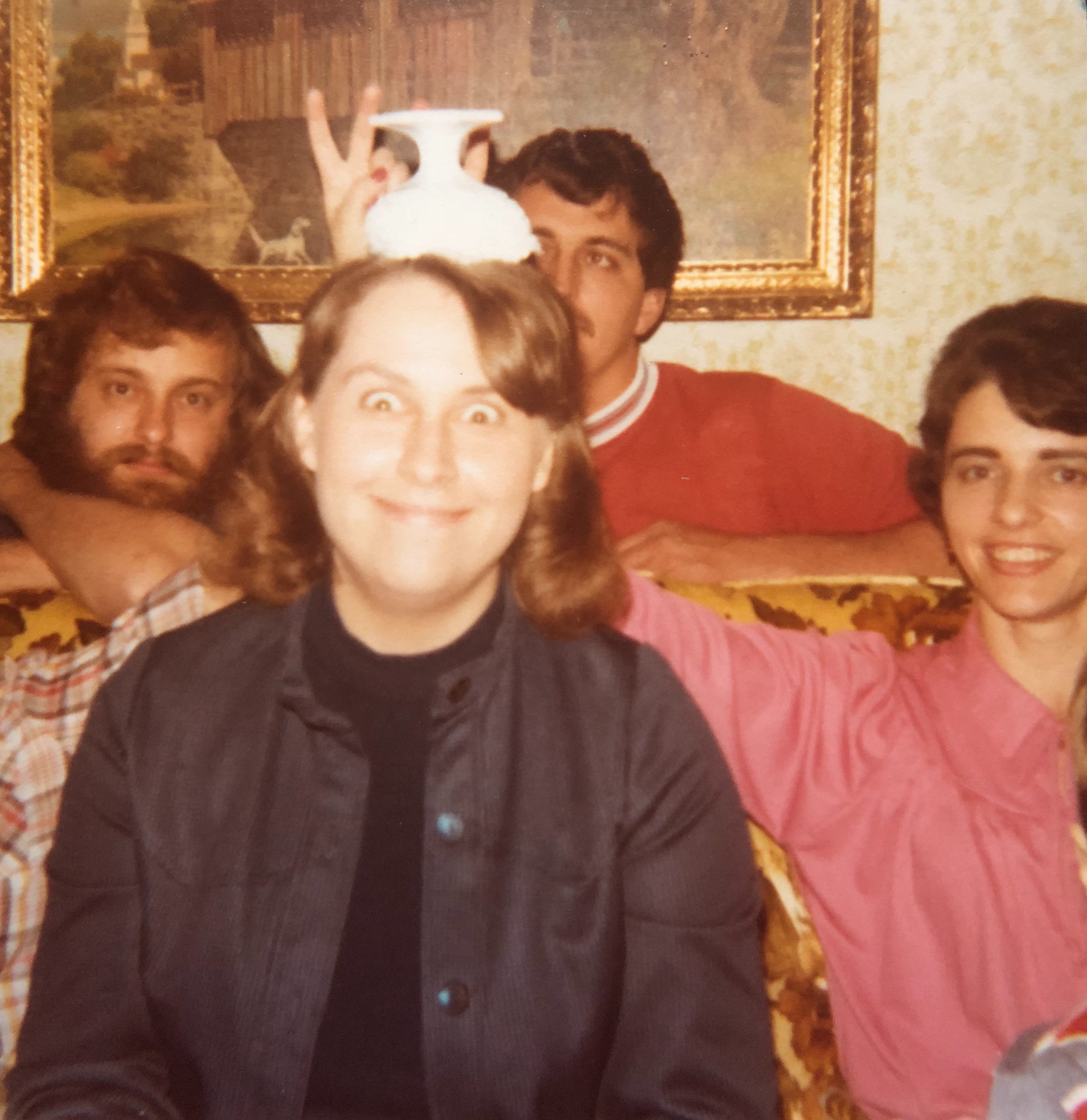
I know I’m a bit late, but I’m just reading this post now. I loved your analysis of Frank & couldn’t agree more. (I loved your sarcasm, BTW). In fact, I’ve re-watched the series multiple times, & I fast-forward through nearly all scenes with Frank. While I felt sad for him that his wife disappeared & he was haunted by the uncertainty of where & why she’d gone & whether she would ever return, I hated how dismissive he was of Claire throughout their time together (e.g., at their kitchen table in Boston, when she expressed a specific wish & he totally blew her off). When he commanded her to never bring up Jamie again, I was appalled. Though the failure of their marriage may have been inevitable due to the intensity of the connection between Claire & Jamie, that demand of Frank’s forced Claire to bottle up all of her thoughts & feelings over the course of their marriage. He may have fared better if he’d allowed her to speak when she felt the need. I could go on & on about all the things about Frank that annoyed/angered/revolted me, but I’d be preaching to the choir.
Thanks so much for reading the post Francie!